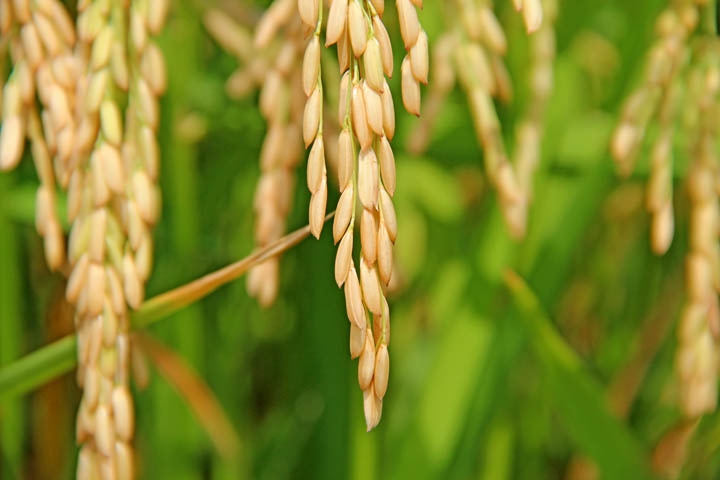May 6, 2014

A University of California report has exposed the injustice that prohibits a genetically engineered additive to rice. Without it the death of millions of children has occurred, notably in Africa and India.
The researcher opinion lays the blame for the international prohibition of producing golden rice through genetic engineering to powerful forces that hide behind environmentalism. California, of course, is one of the world’s major rice producers, ready to supply the vitamin enriched product, especially for export.
The report appears in the current issue of the university’s respected Update bi-monthly publication compiled by the Agriculture and Natural Resources Department. The authors are Justus Wesseler, professor for Agriculture and Food Economics at Technical University, Munich; Scott Kaplan, research assistant at Energy Biosciences Institute at UC Berkeley, and David Zilberman professor in the Agricultural and Research Economics department at UC Berkeley.
The GE process for folding vitamin A into rice, transforming it to golden rice, has been well understood since 2000, but efforts to gain approval have been opposed by powerful regulators, particularly in India and Bangladesh. Both countries are known for the staggering incidence of disease, disabilities and lagging development resulting from a lack of vitamin A in the diets of their citizens.
The authors of the UC report point out that the creation of golden rice could have saved millions of lives and avoided blindness, vulnerability to childhood infections, anemia and poor growth in millions since the engineering process for adding the vitamin was discovered in 1999.
The researchers recall that the nearly worldwide objection to creating golden rice was led by Greenpeace. It was perhaps the most notorious radical environmentalist group at the turn of the century, characterized by a series of risky, but widely reported escapades aimed at derailing broadly accepted programs and activities that were in the news. The movement’s objections were always based on what it perceived as dangers to the environment.
A 2012 Greenpeace publication states: “If introduced on a large scale, golden rice can exacerbate malnutrition and ultimately undermine food security.” Authors of the UC report elaborate by saying that Greenpeace fears that golden rice may accelerate the adoption of other GE crops in developing countries, perceived by Greenpeace and others to be very dangerous.
Greenpeace 180
The report also refers to the 180-degree turnabout by former Greenpeace leader and co-founder Patrick Moore, who now promotes a group called “Allow Golden Rice Society.” He has recognized that the poor have paid the majority of the price of the fight against GE technologies.
The UC report says that a large and growing body of literature indicates that GE varieties have produced a significant amount of real benefit throughout the world.
Publication of the report seems to be an invitation to everyday environmentalists, often fans of radicals and extremists like Greenpeace, to back off a bit, realize the harm and human suffering that has resulted from blocking the humanitarian approval of golden rice.
“Even though GE has been introduced in few crops, its impact on agricultural production is immense because it has increased productivity substantially,” the UC report states. “Furthermore, its impact on productivity has been higher in developing versus developed countries … (but) … its potential has not been realized.”
The UC paper suggests that policies regulating GE technologies need to be reassessed. Perhaps that reassessment needs to begin with a bunch of hangers-on environmentalists in your community and mine who haven’t yet determined that many environmentalist beliefs and policies have nothing to do with human welfare.
About the Author(s)
You May Also Like




